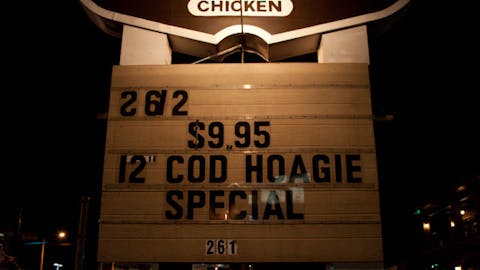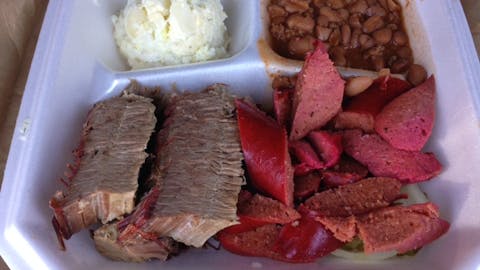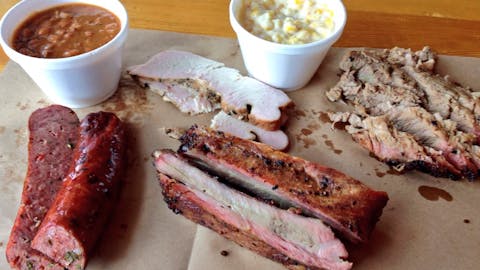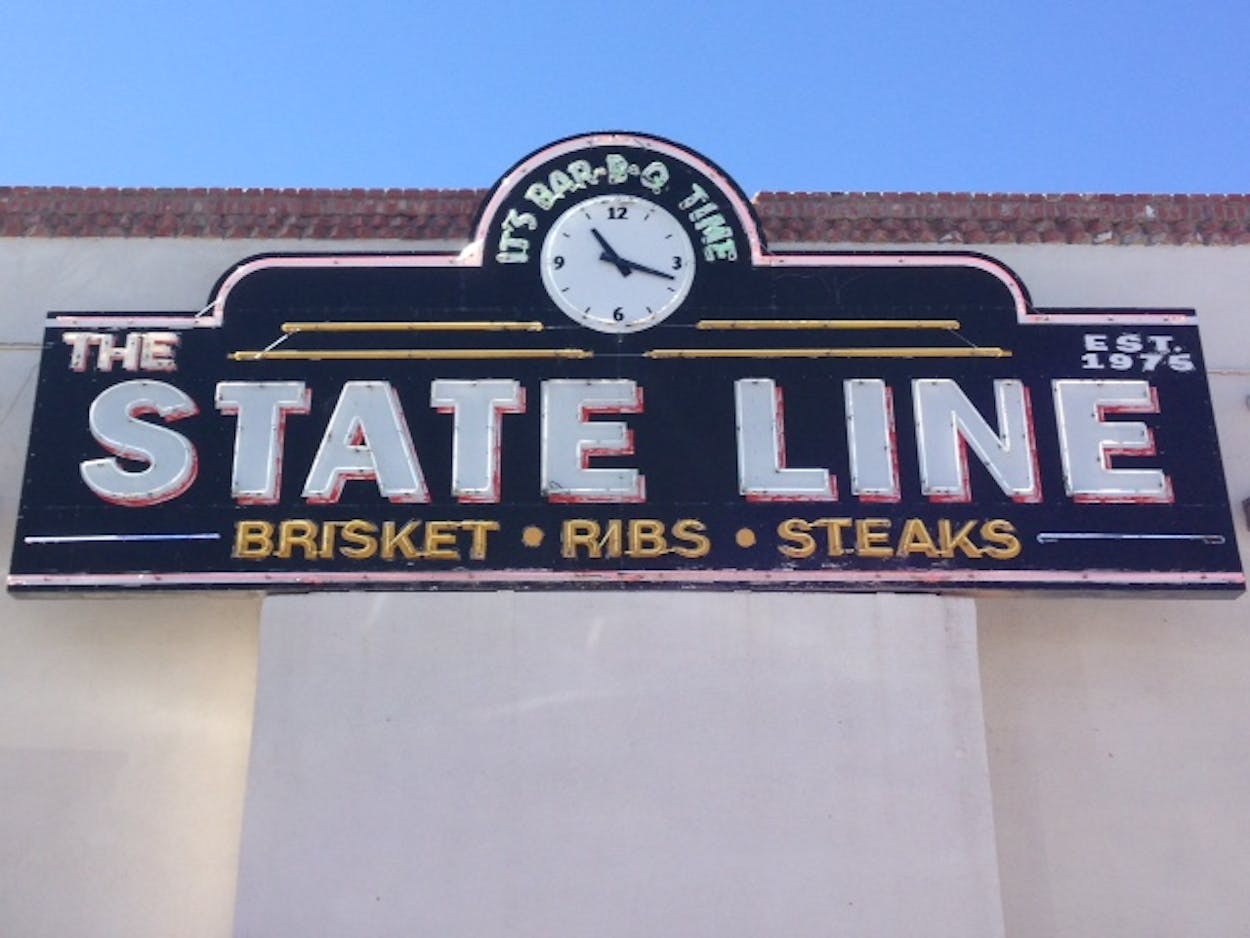On January 18, 1910, a newspaper advertisement for Watson’s Grocery included “Smoked Brisket Beef” for thirty cents per pound. It’s the earliest advertisement for smoked brisket that I have found in Texas, and it was in El Paso. With such a long history of smoking briskets you’d think they would have gotten it right by now. Maybe it’s the elevation, the dry desert air, or even the Mountain time zone, but I’ve had better luck locating kolaches in New York City than I have finding good barbecue in El Paso, Texas.
That doesn’t mean we haven’t tried. Two years ago I drove out west for some research for my book, The Prophets of Smoked Meat, to seek out the highest rated joints in El Paso and the surrounding area. Only one, the Rib Hut, stood out mainly for being a notch above edible. When Texas Monthly sent out reviewers for 2013’s Top 50 list, staff writer Jason Cohen drew the short straw and was assigned the Far West Texas region. He visited ten barbecue joints out there, none of which moved the needle much.
Two weeks ago I went back to the area, with a positive attitude and a mission to find good barbecue. After trying eight more joints, a couple of which were new, I left with only a new pair of Luccheses for my troubles in El Paso.

While there was a pretty cool brisket hash discovery at Tony’s The Pit Bar-B-Q near downtown, that was really the only praise-worthy item I could find. Not just there, but anywhere in the city. I struck out at the two places the El Paso Times recommended for best local barbecue: State Line Barbecue (part of the County Line chain), which captured the paper’s attention in 2013, and Off the Grill, the food truck newcomer the EPT touted in 2014. I stopped by Mangaringas Smokehouse, which just opened last November, hoping it was an undiscovered gem. It was not. The other ten or so places didn’t fare much better.
This dearth of good smoked meats got me wondering: how did El Paso become such a barbecue desert? A quick look back in our own archives and I realized it wasn’t always this way. In 1997, Joe Nick Patoski called Bill Parks Bar-B-Que a “red-Naugahyde oasis of soul-style barbecue in the desert” in the inaugural Texas Monthly Top 50. John Spong sang the praises of Chris Ivey’s joint, The Brisket, in the 2003 list. But sadly, Bill Parks passed away in 2004, and Ivey closed his restaurant in 2007. A successor has yet to emerge, and there are some reasons one might not carry the torch, including one big one: food costs.

After Ivey left the barbecue business, he went to work for the city. I tracked him down, and he told me via email that he thinks the real issue might simply be the cost of doing business. “Economics has become a tremendous factor on having good smoked meat,” he said.
He cited a recent hike in commodity prices like beef, an economic reality that’s hitting all pitmasters hard, but he also pointed out that importing the fuel for smokers–wood–to a city in the middle of a desert also strained overhead costs. What if places paid for better ingredients and just charged more, I asked. Ivey says running a barbecue joint in El Paso isn’t that simple: “Can the population support an establishment that can put out a great product, regardless of what it costs, and afford the [upwardly adjusted] price on a regular schedule?” It’s the same question that a lot of independent, small town barbecue joints have to ask themselves today.
That makes things tough for independent operators, but a chain with more resources is better equipped financially to deal with these challenges. It was no surprise to me that a place like Rudy’s BBQ, with three local joints and nearly forty locations across the country, served the best barbecue I ate in town.

So while it’s tough to find great barbecue in El Paso, a more salient question might be, does it matter to folks in El Paso? John Lewis, pitmaster for Austin’s La Barbecue and soon-to-open Lewis Barbecue, grew up in El Paso and doesn’t remember the local barbecue making much of an impression on him either way. “What we thought of as barbecue was State Line and Cattleman’s.” He’s not a big fan of either now, but back then? “I liked it,” he conceded, before quickly adding, “but as soon as I got to Austin, I fell in love with barbecue.”
One reason Lewis thinks El Paso barbecue didn’t mean much to him was his love for another local staple: “The Mexican food. I’ve missed that ever since I left El Paso.” Austin might have some of the best barbecue in the world, but it doesn’t have Tex-Mex to match the city out west. Ubiquitous homemade tortillas and limitless cheesy enchiladas help one forget all about pale brisket slices.
El Pasoans might be so happy with a great plate of Mexican food that they don’t even notice that the national barbecue renaissance hasn’t made a stop in their city. That it not only forgot it, but seems to have skipped over it to a different desert city: Phoenix, where you’ll find excellent smoked brisket and homemade sausage at Little Miss BBQ.
Help, for those who seek it, might be on the way. I’ve been tracking the social media accounts of Desert Oak BBQ, a caterer in El Paso that plans to open a new barbecue joint in town this summer. Based on the few photos they’ve posts, the brisket looks good, but I won’t know until their began serving in a few months. Hopefully it will be the turning point to bring legitimate barbecue to El Paso. Until then stick to the pillowy gorditas at Little Diner and tasty chile rellenos at H&H Car Wash.








